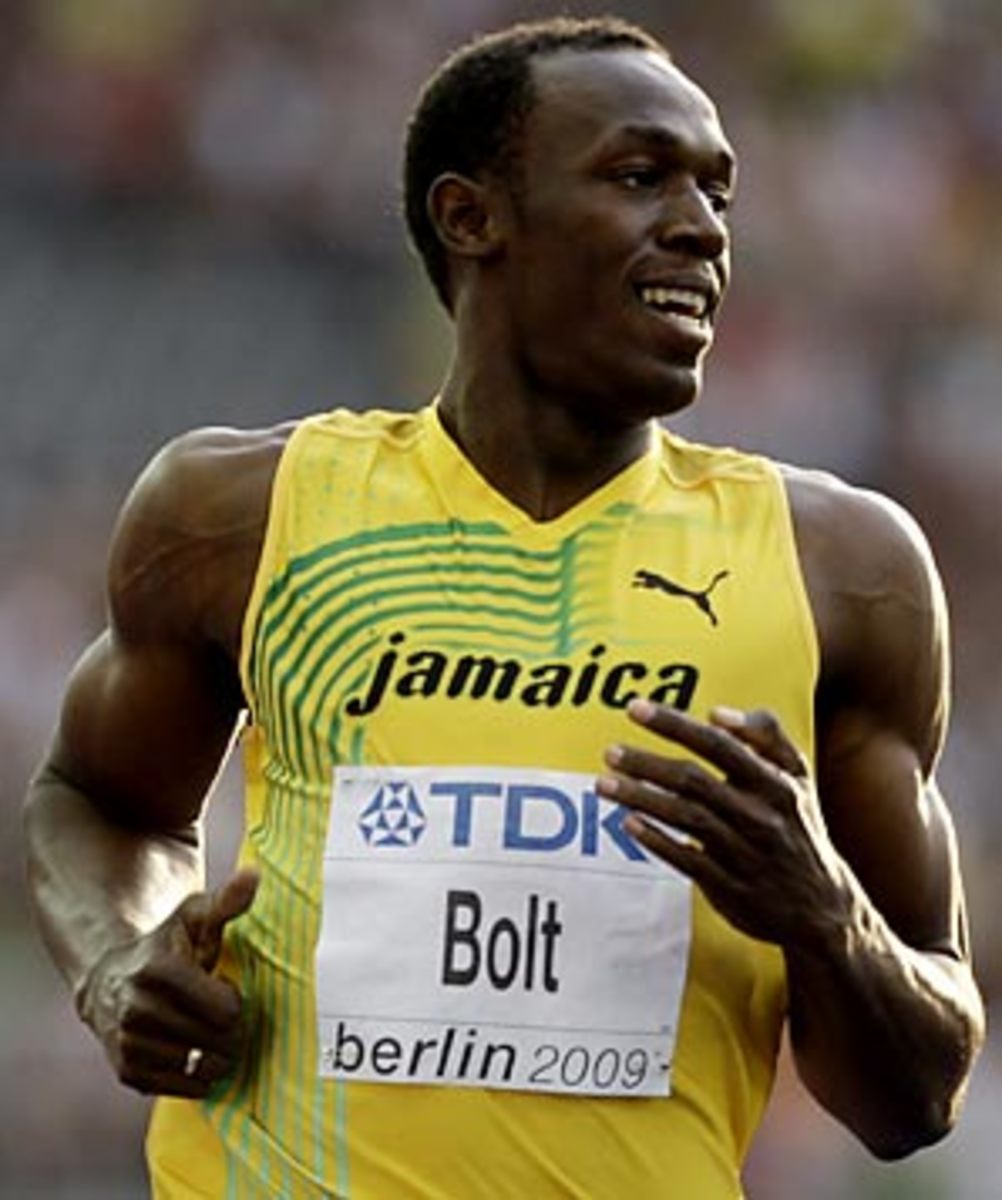
Two mindsets, one golden goal
In contrast, Tyson Gay, the defending world champ who has been plagued by groin injuries as he has been stuck in Bolt's imposing shadow, pushed himself across the finish line of his first two races, looking fit, but still worried about his health. Gay won his quarterfinal heat in 9.98 seconds.
After his race, Bolt sprinted past the waiting press and said nothing. He patted several competitors on the back as they stopped in the serpentine configurations of the mixed zone to talk to reporters. At one point, Bolt hugged Jaysuma Saidy Ndure, a Gambian-born sprinter who runs for the Norwegian team, and barely qualified for Sunday's semifinals in one of the last available slots. Before the race, Bolt, jovial as usual, poked his face in and out at the camera, put up two fingers with each hand and swayed his head back and forth. If he was feeling the tension of the occasion, he certainly didn't show any signs of it.
Gay got off to a horrible start in his quarterfinal heat and was last among eight runners after roughly 20 meters. Still, he stayed composed and pulled ahead for a comfortable finish. Gay has run well in this, his comeback year from his hamstring injuries in 2008. But he suffered a strain two months ago and has been cautious in his starts during training. "I felt real good," Gay said after the race. "I haven't even worked on my starts yet, so to run that fast felt pretty good . . . My groin's pretty sore."
Jamaica's Asafa Powell ran 9.95 out of lane one to win his heat in the fastest time of the day. Powell built a huge lead and slowed down, with the race in his pocket by 70 meters. Darvis Patton of the U.S. finished second in the heat in 10.05. Earlier, U.S. champ Mike Rodgers won his heat in 10.01 seconds, distancing himself from the pack by 85 meters and easing across the line.
At least judging by what we saw on Saturday, there is nothing to suggest Bolt won't confirm his standing as the fastest man alive on Sunday.
* * *
Christian Cantwell had built an unfortunate nickname in the sport: Can't-do-well. This is a gentle man who stands 6-foot-5, weighs 300 pounds and wouldn't even look at you cross-eyed if you suggested the world-class U.S. shot putter had trouble with pressure. On Saturday night, Cantwell could and did. The 28-year old made up for a career of disappointments at big meets, putting the shot 22.03 meters (72 feet, 3½ inches) on his fifth attempt. As he watched his throw go far into the distance, Cantwell let out a roar that was nearly a career in the making.
Consider the 2004 season. Cantwell won the world indoor title early that season and recorded the four longest throws of the year outdoors. But in between, he finished fourth at the Olympic trials, fouling on five of six throws. The next year, he won the national title with a toss of 71 feet, but threw nearly three feet shorter to place fifth at the world championships in Helsinki.
That started to change on his final throw at the Olympics last summer. Cantwell sat in fifth place before his last throw, when he moved into silver-medal position with a toss of 21.71 meters (71 feet, 2¾ inches) on his sixth attempt. Cantwell looked at that meet as a missed opportunity rather than a medal-worthy performance. "I'll never wipe away that memory," he says. "It's not a memory I want wiped away." And he had still never won a long-overdue major international outdoor title until Saturday.
Cantwell began well in Berlin, taking an early lead with a throw of 21.54 meters (70-8) on his first toss. That held up until rounds four and five, when Poland's Tomasz Majewski passed him with throws of 21.68 (71-1½) and 21.91 (71-10¾). Cantwell said Majewski's fifth throw didn't faze him. "He was already in the lead," Cantwell said. "What the hell's another foot?"
Asked if he needed to feel a jolt of excitement to produce his winning throw, Cantwell replied, "I told myself to slow down and relax. Bend the fingers back and relax. I didn't sleep well last night. I don't need excitement to throw 22 meters."
If this was a shot-put sized weight off the shoulders, Brad Halter, Cantwell's coach, wasn't going to accept swipes at his protégé's past. "Like every professional athlete, he's had to deal with injury," Halter said. "We've had to pay the bills. If people understood what he's had to do to get that done -- compete all the time, sleep on small beds, not eat right with all the travel -- if the rest of the world understood what he brought to competitions, they'd be scared to death of this man."
Perhaps now they are.




